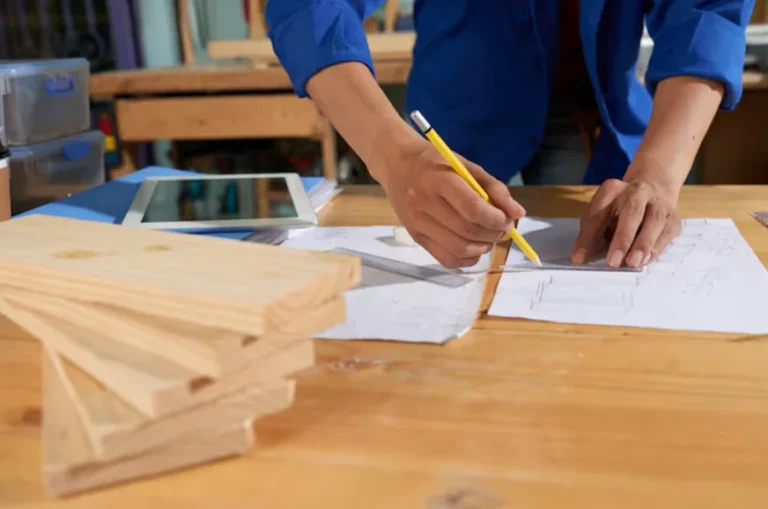Living life to the fullest is a common aspiration, yet many people find themselves stuck in routines or overwhelmed by the challenges of modern life. This guide aims to provide practical steps and insights to help you start living a more fulfilling life. By focusing on self-awareness, goal setting, mindfulness, relationships, physical health, lifelong learning, and embracing change, you can begin to make meaningful changes that lead to a richer, more satisfying existence.
1. Cultivate Self-Awareness
Self-awareness is the foundation of a fulfilling living life. Understanding your values, passions, strengths, and weaknesses can help you make decisions that align with your true self. Here are some steps to develop self-awareness:
- Reflect regularly by dedicating time each day to self-reflection. Using a journal can be an effective way to examine your thoughts and emotions. Ask yourself questions like, “What am I passionate about?” and “What makes me feel fulfilled for living life?”
- Seek Feedback Feedback from others can provide valuable insights into your behaviour and how it affects those around you. Seek honest feedback from trusted friends, family, or colleagues.
- Embrace Mindfulness Mindfulness practices, such as meditation, can help you stay present and attuned to your inner experiences. Regular mindfulness can increase self-awareness and emotional regulation.
2. Set Clear Goals
Establishing clear and attainable goals provides direction and purpose in life. Goals can range from personal development and career aspirations to health and relationships. Here’s how to set effective goals:
- Define Your Objectives Clearly articulate your goals and be specific about your desired outcomes. Instead of saying, “I want to be healthier,” set a concrete goal like, “I will exercise for 30 minutes five times a week.”
- Break Down Goals Large goals can be overwhelming. Break them down into smaller, manageable tasks. For example, if your goal is to write a book, start with daily writing targets.
- Track Your Progress Regularly monitor your progress to stay motivated and make adjustments as needed. Use tools like planners, apps, or journals to keep track of your achievements.
3. Practice Mindfulness and Presence
Mindfulness is about being fully present in the moment, which can enhance your appreciation of life and reduce stress. Here are ways to incorporate mindfulness into your daily routine:
- Mindful Breathing Take a few minutes each day to focus on your breath. Deep, slow breathing can calm your mind and help you stay grounded.
- EngageYourself Fully in Activities Whether you are dining, working, or spending time with loved ones, focus entirely on the activity at hand. Avoid multitasking to experience each moment fully.
- Gratitude Practice Regularly reflecting on things you’re grateful for can shift your mindset to a more positive outlook. Keep a gratitude journal and write down three things you’re thankful for each day.
4. Foster Meaningful Relationships
Strong, meaningful relationships are crucial for a fulfilling life. Building and maintaining these connections can provide emotional support, joy, and a sense of belonging. Here’s how to nurture your relationships:
- Prioritise Quality Over Quantity Focus on building deep connections with a few people rather than having many superficial relationships. Invest time and effort in these relationships to strengthen them.
- Communicating Openly Honest and open communication is key to any healthy relationship. Share your thoughts and feelings, and be a good listener in return.
- Show Appreciation Regularly express gratitude and appreciation for the people in your life. Small gestures, like a heartfelt thank you or a thoughtful note, can go a long way.
5. Take Care of Your Physical Health for Living Life
Physical health is a vital component of overall well-being. By taking care of your body, you can improve your energy levels, mood, and longevity. Here are some tips to maintain your physical health:
- Exercise Regularly Strive for a minimum of 150 minutes of moderate aerobic exercise or 75 minutes of intense exercise each week. Find an exercise routine that you enjoy to make it sustainable. Consider incorporating activities you find fun, like dancing, hiking, or team sports.
- Eat a Balanced Diet Consume a variety of foods to ensure you’re getting the necessary nutrients. Focus on whole foods, such as fruits, vegetables, lean proteins, and whole grains.
- Get Adequate Sleep Aim for 7-9 hours of sleep per night. Establish a regular sleep schedule and create a restful environment to improve sleep quality.
6. Pursue Lifelong Learning
Lifelong learning can take many forms, such as formal education, hobbies, or travel. Here’s how to incorporate lifelong learning into your life:
- Set Learning Goals Identify areas you’re interested in and set specific learning goals. Whether it’s mastering a new skill, learning a language, or exploring a new hobby, having clear objectives can keep you motivated.
- Seek Out New Experiences Push yourself out of your comfort zone by trying new activities or visiting new places. Novel experiences can provide fresh perspectives and stimulate personal growth. Don’t be afraid to embrace activities that seem fun or lighthearted – learning a new dance style, taking a pottery class, or joining a recreational sports league can all be valuable learning experiences.
- Reading Regularly Reading is a simple yet powerful way to gain knowledge. Make a habit of reading books, articles, or other materials that interest you and broaden your understanding of the world.
7. Embrace Change and Adaptability
Life is full of changes, and being adaptable can help you navigate these shifts more smoothly. Embracing change rather than resisting it can lead to personal growth and resilience. Here are ways to become more adaptable:
- Develop a Growth Mindset A growth mindset is the belief that abilities and intelligence can be cultivated through dedication and learning. View challenges as chances to develop rather than as hindrances.
- Practice Resilience Build resilience by learning to cope with setbacks and adversity. Focus on problem-solving, seek support when needed, and maintain a positive outlook.
- Stay Flexible Be open to new ideas and ways of doing things. Flexibility can help you adjust to changing circumstances and make the most of new opportunities.
8. Make Time for Fun and Play
Living a fulfilling life isn’t just about goal achievement and self-improvement. It’s also crucial to make time for activities you simply enjoy. Here’s why incorporating fun and play is important:
- Reduces Stress and Boosts Mood Engaging in activities you find fun can be a great way to de-stress and improve your mood. Laughter, for instance, has been shown to have numerous health benefits, including reducing stress hormones and boosting the immune system.
- Enhances Creativity and Problem-Solving Playful activities can stimulate creativity and innovative thinking. When you’re relaxed and having fun, you’re more likely to come up with new ideas and solutions to challenges.
- Connecting You with Others Sharing fun activities with friends and family can strengthen your bonds and create lasting memories. Whether it’s playing board games, going for a hike, or simply enjoying a good conversation, fun can be a powerful tool for connection.
- Increases Overall Well-being Making time for activities you enjoy can significantly improve your overall well-being. It fosters a sense of joy, fulfilment, and satisfaction with life.
9. Finding Your Fun
The key to incorporating fun and play is to identify activities you genuinely enjoy. This can vary greatly from person to person. Here are some tips to find your fun:
- Reflect on Childhood Passions Think back to activities you enjoyed as a child. Could you revisit some of those interests?
- Explore New Hobbies There’s a whole world of hobbies out there! Take a class, join a club, or simply explore different activities until you find something that sparks your joy.
- Spending Time in Nature Being outdoors can have a significant mood-boosting effect. Go for a walk in the park, try gardening, or simply sit outside and appreciate the beauty of nature.
- Be Creative Express yourself through art, music, writing, or any other creative outlet that excites you.
- Connect with Others Playing games, socialising with friends, or joining a recreational sports league can be a great way to have fun and connect with others.
10. Balance is Key
Remember, a fulfilling life is about achieving a balance between goal achievement, self-care, and simply having fun. Don’t get so caught up in productivity and achievement that you neglect the importance of play and leisure. Schedule time for activities you enjoy, and don’t be afraid to prioritise your well-being and happiness.
Conclusion
Starting to live life to the fullest is a journey that involves self-awareness, goal setting, mindfulness, nurturing relationships, maintaining physical health, lifelong learning, embracing change, and making time for fun. By incorporating these practices into your daily routine, you can create a more fulfilling and satisfying life. Remember, it’s about progress, not perfection. Take small, consistent steps, and over time, you’ll see significant improvements in your overall well-being and happiness.















+ There are no comments
Add yours